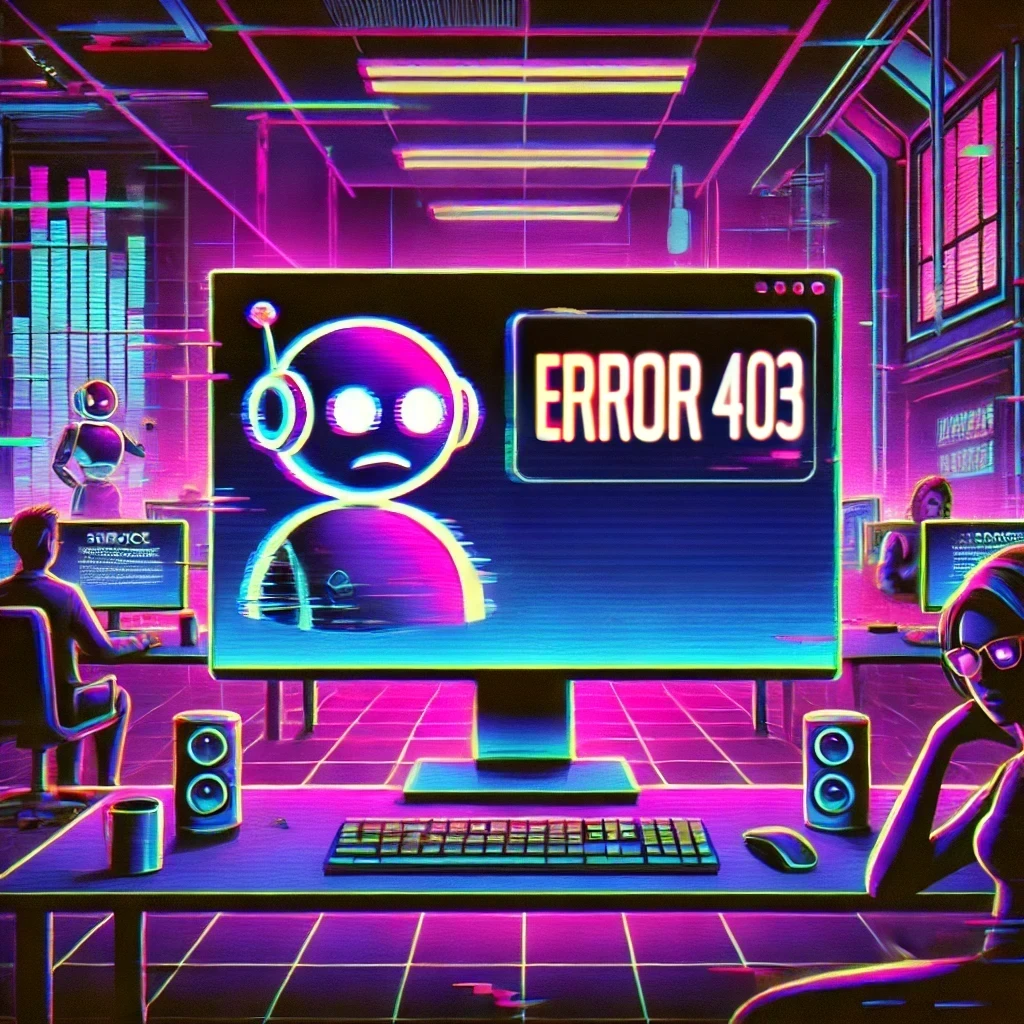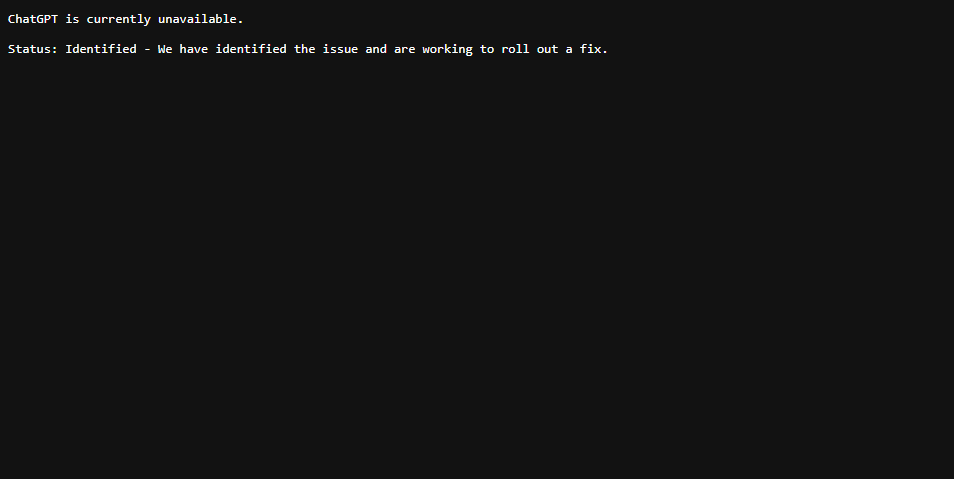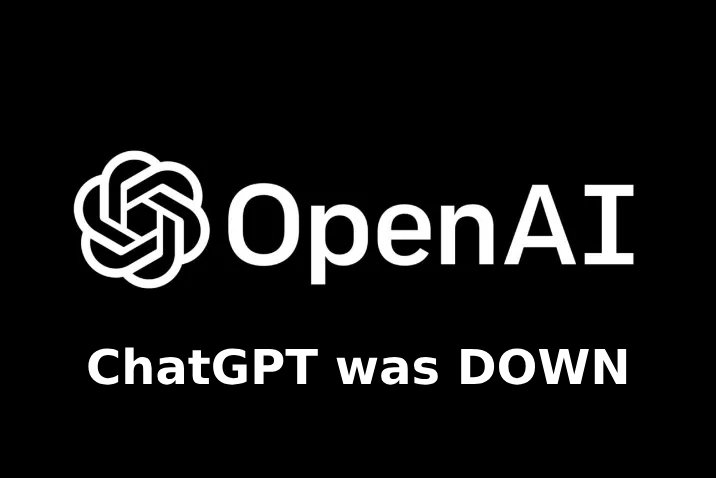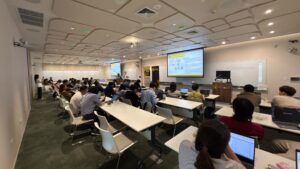Impact of ChatGPT Downtime: How the Recent Outage Affected Businesses and Users

On Dec 12, 2024, OpenAI’s popular AI tool ChatGPT faced a significant outage, causing widespread disruption across businesses, education, and development sectors. The downtime, lasting approximately three hours, left thousands of users unable to access the service. While OpenAI managed to restore functionality, this incident highlighted the broader implications of AI service interruptions. In this article, we’ll explore the impact of ChatGPT downtime, its consequences, and lessons for the future.
What Happened During the ChatGPT Outage?

The incident began around 6:00a.m UTC+7 when users reported errors like “ChatGPT is currently unavailable” messages and difficulties loading ChatGPT across web, desktop, and mobile platforms. OpenAI quickly acknowledged the issue and updated their status page, stating that they were actively working to resolve the problem.
The service remained inaccessible for several hours, and OpenAI did not disclose the specific cause of the outage. Despite this, the effects of this disruption were widely felt, emphasizing the growing reliance on AI tools for daily operations.
Consequences of the ChatGPT Downtime

1. Disrupted Business Operations
Many businesses rely on ChatGPT for customer service, content generation, and workflow automation. The impact of OpenAI downtime was evident as these businesses faced delays, potential revenue loss, and reduced productivity.
- Customer Support Delays: Companies using ChatGPT for automated customer support had to switch to manual operations, increasing response times.
- Content Creation Interruptions: Marketing teams relying on ChatGPT for copywriting and brainstorming faced delays in content delivery.
2. Academic Setbacks
Students and educators often use ChatGPT for research, study assistance, and project work. The outage disrupted academic workflows, affecting deadlines and learning outcomes.
- Research Delays: Students relying on ChatGPT for quick information retrieval had to find alternative resources, slowing down their projects.
- Learning Assistance: The temporary unavailability of ChatGPT impacted study plans, especially for those using it for exam preparation and homework help.
3. Developer Challenges
Developers integrating ChatGPT into their applications and services faced significant hurdles. The impact of OpenAI downtime disrupted user experience and application functionality.
- App Downtime: Applications that depended on ChatGPT APIs for real-time responses were temporarily non-functional.
- Loss of User Trust: Users encountering broken features in apps during the outage may have experienced frustration, leading to a decline in trust.
Wider Implications of AI Downtime
The outage serves as a reminder of the vulnerabilities associated with AI services and the importance of having contingency plans in place. As reliance on AI grows, businesses and individuals must consider the following:
1. Backup Systems and Redundancy
Organizations should implement alternative solutions to mitigate the impact of AI service disruptions. This includes backup tools, manual workflows, and redundant systems.
2. Communication and Transparency
Clear communication during outages is crucial. OpenAI’s prompt acknowledgment helped manage user expectations. Businesses should adopt similar practices when facing service interruptions.
3. Diversification of Tools
Relying on a single AI service increases the risk of disruptions. Diversifying the tools and services used for automation and productivity can reduce dependency and enhance resilience.
Lessons Learned from the ChatGPT Downtime
AI Reliability is Critical:
As businesses integrate AI deeper into their operations, ensuring the reliability of these tools is paramount.
Contingency Plans are Essential:
Having fallback solutions can minimize disruptions when outages occur.
User Trust and Transparency:
Keeping users informed during downtimes helps maintain trust and manage expectations.
Infrastructure Resilience:
AI providers must continually enhance their infrastructure to avoid prolonged downtimes.
Conclusion
The impact of ChatGPT downtime on Dec 12, 2024, underscored the growing reliance on AI tools in various sectors. From businesses and academia to developers and content creators, the outage highlighted the need for resilient systems and effective contingency plans. While OpenAI restored service within hours, this event serves as a crucial lesson on the importance of AI reliability and preparedness.
As AI becomes more embedded in daily operations, understanding and mitigating the risks of downtime will be key to maintaining productivity and user trust.
Learn more about ChatGPT and OpenAI




